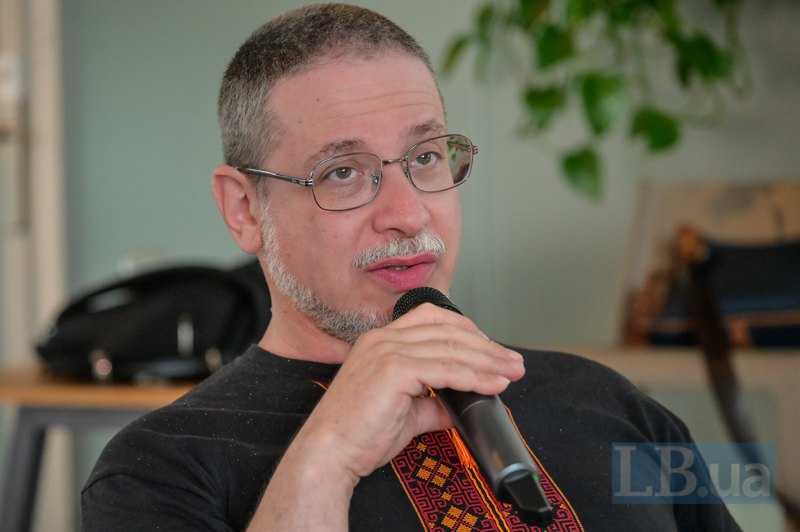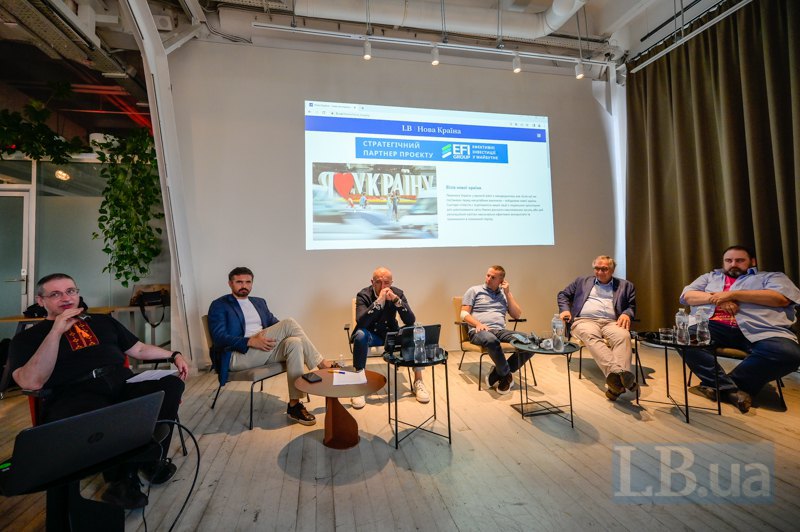
However, private investors will not come to Ukraine without restoring order and predictability in government policy, the expert insists.
"I dream of an economy without any priority industries. Because it will be recognised that the main business entity is the entrepreneur, not the state. And the state, instead of thinking about priority sectors of the economy, will create different, equal, transparent and predictable conditions," said Pekar.
He noted that the Coalition of Business Communities for the Modernisation of Ukraine, which unites the country's 95 leading business associations, tens of thousands of enterprises, many of which are individual entrepreneurs, conducted a study that showed that the unpredictability of state policy, not war risks, was problem No 1 mentioned by entrepreneurs.
"The unpredictability of state policy is something that the state can definitely influence by making it predictable. It is difficult for us to influence the security situation, it depends not only on us. It is difficult for us to influence the policies of our allies and our enemies. But we can definitely ensure our own predictability," he said.
Also, 65% of entrepreneurs complain about pressure from law-enforcement agencies.
"Sixty-five per cent. See, had it been 6.5%, it would have been terrible. But here we have 65%. Some 54% complain about the blocking of tax invoices. This is despite the fact that we have already lived in the Ukraine where there was no blocking of tax invoices. This process was transparent, automatic, and brought money to the budget. So why do we see a huge amount of work ahead of us again? Because we are going backwards, two steps forward, three steps back," argued Pekar.

In his opinion, Ukraine will face five major challenges after the election.
1. Long-term security
Russia is aggressive and will not go away. Even when it collapses, there will still be a large aggressive piece that will seek revenge. Therefore, Ukraine must join NATO or have adequate security guarantees.
2. Rule of law
"Ranking 74th in the world in terms of the rule of law obviously does not attract international investors. And we won't lure them here with any investment nannies because they are prefer equal, transparent rules of the game that can be read in a book, rather than individual approaches," the expert pointed out.
3. Economic freedom
The situation with economic freedom is even worse.
"As of 1 January 2022, we ranked 130th (out of 177 - ed.) in the world in terms of economic freedom. Let's be frank. Such countries have no chance of recovering from the war. I am very glad that the government is now well aware of this and is developing a large package of measures to radically improve this situation. If we move from 130 to 120, it will not convince investors. If we move to at least the 50th, it will. And this requires radical changes," suggested Pekar.
First, entrepreneurs must be freed from pressure from law-enforcement agencies, from bribery, and from violations of the law, "which are constantly being committed by tax authorities, customs officers, and law enforcement officers".
Roman Vashchuk: "The best recovery strategy is to stop doing stupid shit"
"The state must ensure a level of macroeconomic stability and a level of competitiveness of the banking system, when entrepreneurs will compete for their investors with banks and will be able to actually get bank loans at moderate rates so that the economy can grow. Of course, this cannot happen in time of war, but this is our task after the war," the expert said.
4. Demographics
Even if all 6.4 million Ukrainian citizens from abroad, as mentioned by Mr Andriy, return, it will still not be enough. Our demographic pyramid has long been inverted. We have long had few people working and many pensioners.
5. Democracy
Is there economic growth without democracy? Yes, this happens. In the industrial era, this was proved by South Korea, which gained democracy in a generation, and Japan (Meiji era), said Pekar, but in the post-post-industrial era, when the main added value is created in other areas, when the main capital is human capital, economic growth is impossible without democracy.
"Now we are forced to face major restrictions on democracy imposed on us by the situation of war. We have restrictions on the freedom of speech, active civil society, the freedom of assembly, restrictions on decentralisation, which is our most successful reform, we have restrictions on data transparency and many other restrictions. And we consider this a necessity of martial law. But after the victory, we will need to restore it very quickly, because otherwise people will lose the sense of being here. And this fear that everything will be the same after the victory is enormous in all strata of society. People are afraid that if nothing changes, then everything was in vain. All the hundreds of thousands of losses were in vain, everything was in vain," the expert said.
But first of all, he suggested that we have to change ourselves and change our point of view on how we want to live in this Ukraine. While we are limited in our ability to change the country, we have every opportunity to change ourselves during martial law.
"Start with yourself, go to your street, go to your city, go to your region, go to the whole country, and then to the whole of Central and Eastern Europe. I would say more, Northern Eurasia. We gave birth to this empire, we have to bury it, we simply have no other options, because there are no other leaders with shovels," Pekar concluded.








